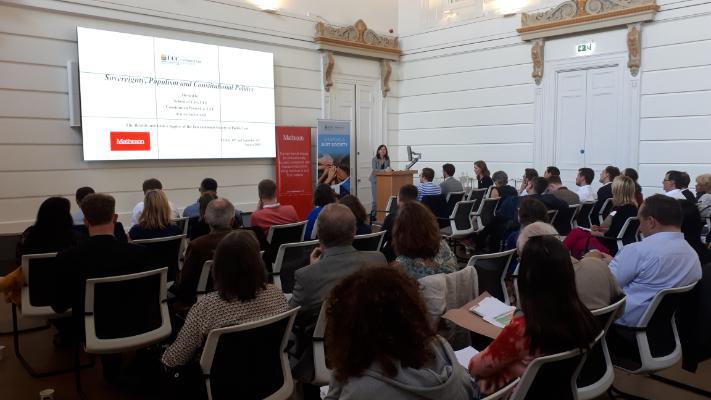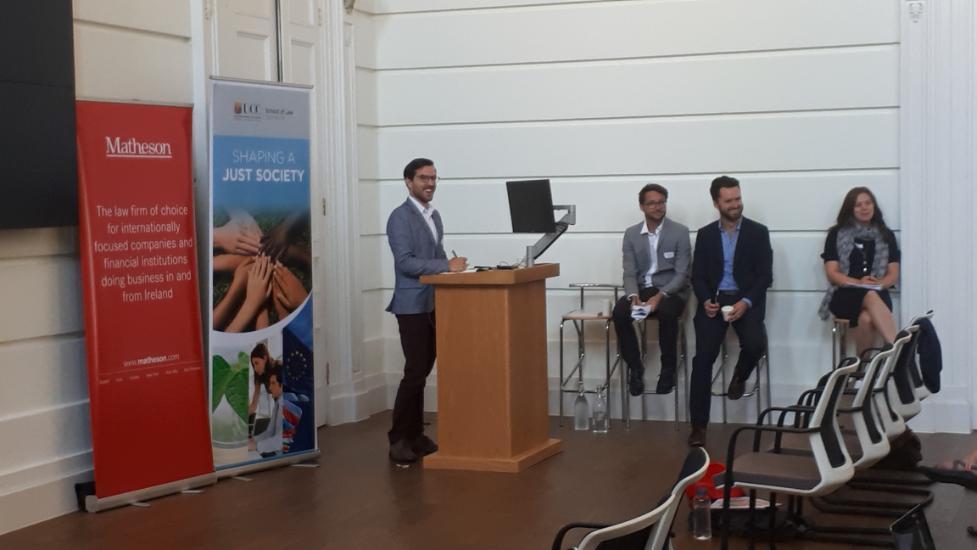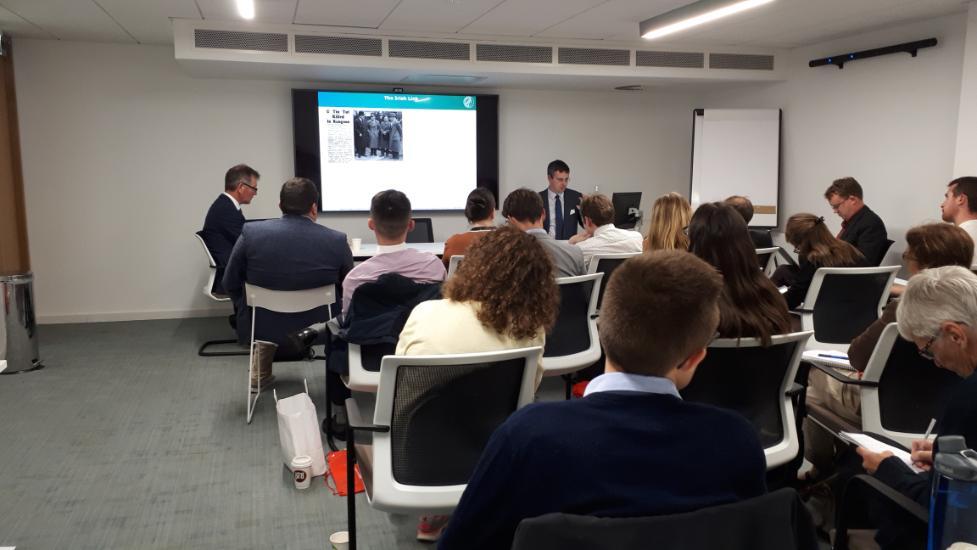In This Section
- Home
- About us
- People
- Courses
- Current Students
- Research
- Shaping Society
- Careers
- News and Events
- Alumni
- International Applicants
- College of Business and Law
- Scholarships and Prizes
- European China Law Studies Association Annual Conference 2025
Speakers Discuss Sovereignty, Populism and Constitutional Politics At Constitution Project Conference

On August 30-31, Constitution Project @ UCC, in association with the British and Irish Chapter of the International Society of Public Law, played host to a conference on the theme of “Sovereignty, Populism and Constitutional Politics”.
70 delegates saw 33 speakers drawn from academia, legal practice and government spread across 10 panels. The keynote address was delivered by Professor Gráinne de Burca of New York University, who considered the challenges posed to the EU by the rise of populism, and lessons that Europe could learn from Ireland’s experiments with Citizens’ Assemblies.
The speakers were an interesting mix of established and familiar faces as well as emerging scholars. Several were making their first visit to Ireland, or their first presentation at an academic conference (which made the quality of the presentations all the more notable). It would not be possible to cover every paper in a brief report, but a few examples will be mentioned.

In keeping with the theme of the conference, there was a particular focus on sovereignty, with two panels dedicated to this topic. Clara Hurley proposed that the concept of sovereignty could be helpfully refined using insights from relational autonomy, while Raphael Girard discussed the relationship between populism, constituent power and popular sovereignty. Using insights from the particularities of the Irish context, Maria Cahill distinguished between ‘sovereignty as substantive capacity’ and ‘sovereignty as declaratory capacity’, while Eoin Daly emphasised unaccountability and unreviewability as the hallmark of sovereignty, Laura Cahillane highlighted the relationship between popular sovereignty and trust in the constitution and Michael Kearney noted some indeterminacies around self-determination.
Ireland’s extensive experience of amending the Constitution by way of referendum received detailed coverage. Gavin Barrett gave a general overview of this experience, while other papers focused in on specific aspects, including referendum petitions (Jennifer Kavanagh) and Citizens’ Assemblies (Oran Doyle and Rachael Walsh). David Kenny considered the idea of “referendum culture”, while Hillary Hogan looked in detail at a specific referendum, namely the 2004 citizenship referendum.
Comparative perspectives were also to the fore. Claudio Martinelli compared the Irish and Italian experiences of expressing popular sovereignty through the referendum process. Donal Coffey shed light on the unexpected and striking degree of influence that the Irish Constitution had on the drafting of the 1947 Burmese Constitution; while Colm O’Cinneide posed the question of what Ireland has to offer to global constitutional debates, concluding that Irish constitutional law finds itself in a moment of comparative constitutional fashionability, which brings both opportunities and responsibilities for Irish constitutional scholars.

Current trends and debates in Irish constitutional case law were considered in panels on judicial power, governance and a dedicated panel on the recent Supreme Court judgment in the Angela Kerins case. Finally, the academic publishing landscape in the broad field of public law was considered in a publishing workshop that explored publishing in the US (Gráinne de Burca), UK (Aileen Kavanagh), Europe (Gavin Barrett) and in traditional and new media (Conor O’Mahony).
The conference combined serious academic debate with a light-hearted and sociable atmosphere (including a sold-out dinner, and pizza for lunch!) We are grateful to all of the speakers and delegates for their participation; to Matheson Solicitors for sponsoring the keynote address; to Deirdre Kelleher for invaluable organisational support; and to Oran Doyle for his assistance as co-chair of the British and Irish Chapter of ICON-S.
School of Law
Scoil an Dlí
Contact us
Room 1.63, Aras na Laoi, T12 T656
